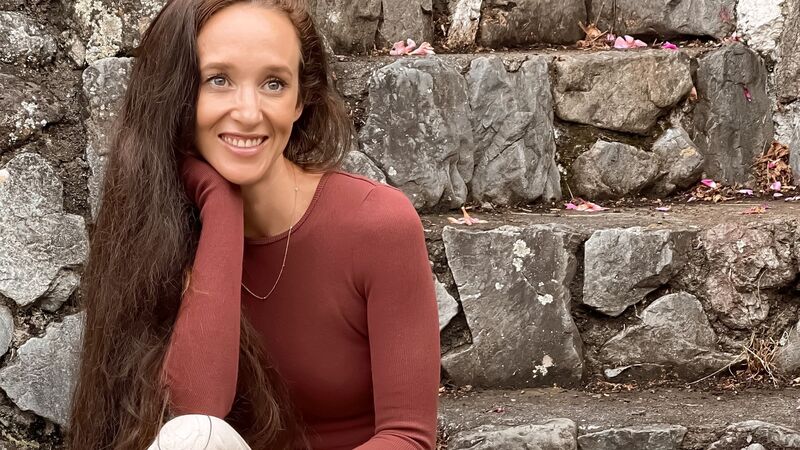You are viewing your 1 free article this month. Login to read more articles.
New subscription box service confronts lack of representation in children's books
A new subscription service offering monthly deliveries of black children's literature has been launched in response to the lack of children’s books in the UK featuring BAME characters.
The business, called Imagine Me Stories, is the brainchild of Keisha Ehigie who is passionate about making representative books for children (0–12) far easier to discover.
Ehigie, a former corporate governance consultant, explained she set up the business as a one-woman band after becoming frustrated by the lack of children’s books her little girl could see herself in.
“It was really hard finding books for my little girl. She is three now and she has always loved books. I noticed she was finding differences in her appearance to her friends, and saying things like, ‘I want straight hair’. I wanted to know where is she getting this from, and then I realised that all she is seeing is images of people who don’t necessarily reflect her reality," she said.
“I decided I really needed to get her some books where she can see another little girl that looks like her. So I decided to look – and it was a bit of a mission. I went to Waterstones, you probably won’t find that many in there, and I looked on Amazon, and there are some but not as much variety as you would get for everything else. And I thought, ‘If I am going through this challenge, other parents probably are as well.’ That’s why I decided to set up this initiative: to show there is a need for these books, to help parents get representative books, and to, hopefully, increase the amount of books [featuring black main characters in children’s publishing] that are published in the future.”
Each monthly subscription box starts at £18.99 per month (plus £3 postage) and contains two–three “specially chosen top quality books featuring representative characters plus empowering activities to educate them on black history and culture”. Packages can be obtained on a month-to-month basis or longer term for three, six or 12 months, all with the option to cancel anytime
The book boxes contain one non-fiction biographical title plus two fun, fiction reads, chosen according to reading level/ age, and supplemented by activity sheets on the month's given theme (for example, inventors or musicians). The activity sheets, devised by Ehigie herself, may also include folk tales and African proverbs to help children learn about the different cultural aspects of the black community.
Among the selected titles this month are Mylo Freeman’s Princess Arabella is a Big Sister (Cassava Republic), Hidden Figures: The True Story of Four Black Women and the Space Race by Margot Shetterly and Coretta Scott King, illustrated by Laura Freeman (HarperCollins) and Crown: An Ode to the Fresh Cut by Derrick Barnes, illustrated by Gordon C. James (Denene Millner Books).
After launching in September, Imagine Me Stories has roughly 100 subscribers so far, with hopes to rapidly increase its base five- or tenfold in a year’s time.
The Centre for Literacy in Primary Education (CLPE) reported in September in its second annual survey exploring the issue that there has been a slight increase in children's books featuring a BAME characters – from 4% in 2017 to 7% last year – with a rise in BAME central protagonists – from 1% to 4%. However, "it is as much about quality as it is about volume", the body said, as concerns also surfaced about preventing tokenistic and simplistic depictions of BAME characters.
Commenting on where the root of the problem lies, Ehigie said she suspected lack of representation in the industry itself had a bearing. Meanwhile, similar to testimony highlighted by ACE’s report on diversity in the children's sector, in which interviewees levelled diverse books were often expected to focus on issues faced by underrepresented groups, Ehigie said she would also like to see more diverse books where the child’s “otherness” was not the cornerstone of the story.
Ehigie said: “I’m not from the publishing industry, but I think they just don’t have that many BAME staff who would then be looking out for these kinds of books; it is probably not on their radar. Now this kind of research has come out, they are probably trying to commission more books [feature BME characters] but there is a whole different element. It is not just about putting a black character in a book, it is about the quality of the book and making sure it is not just a book drawing attention to the otherness of the child. Because you do find with a lot of the books that are out there with BME characters, you do find they concentrate on heavy topics like inequality. And while there is a place for those books, there is also a place for, you know, ‘I went to school today –’, ‘I got a new pet –’, ‘I went on an adventure – and I happen to be a black child’. It isn’t about the person’s race, but the person just happens to be of a different ethnicity.”
Trade figures recently welcomed ACE's report exploring the lack of representation in children's publishing, agreeing that to publish inclusively the industry must recruit inclusively and calling for greater collaboration across the sector to accelerate the pace of change.


















